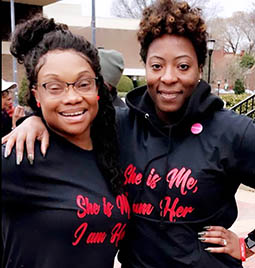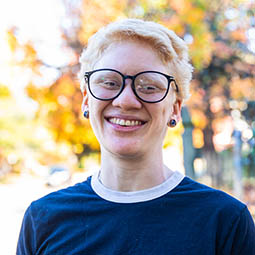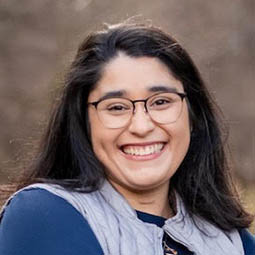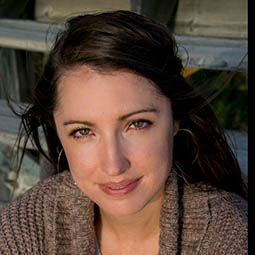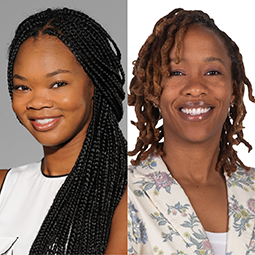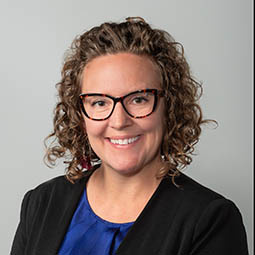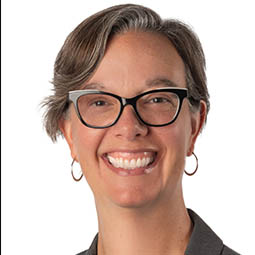Meet M.S.W. alumni and faculty
Our graduates inspire, advocate and lead. Our faculty teach, challenge and mentor.
What can you do with a Master's of Social Work from VCU, and who are some of the faculty members you might encounter who will help shape your experience? We want you to meet some of our exemplars.
Featured alumni
Chander, an LCSW, is a behavioral health case manager for Humana and lead therapist/CEO of Soul Guided Healing & Wellness, LLC. Davis, an LMSW, is a travel social worker.
Chandler and Davis were in the same M.S.W. cohort, graduating together in 2017. They reconnected afterward thanks to their mutual interest in HIV awareness.
“We were both advocating for individuals living with HIV and prevention efforts,” Davis says. “I would see her name as an attendee from time to time, so one day I said, ‘Let’s meet while at the training.’ ”
They previously collaborated for Speak Glamher, a nonprofit Chandler founded to focus on educating and promoting the importance of sexual and mental health for women and girls of color.
“Black and Brown communities of color are at higher risk of experiencing trauma, mental exhaustion, violence and chronic health conditions,” Chandler says. “Black women are at higher risk for being diagnosed with HIV compared to other races. Black women deserve a space where they can be seen, heard and supported during their healing journey.”
Chandler is currently focusing her energy on her private practice, Soul Guided Healing & Wellness, which provides culturally-sensitive mental health therapy for women and girls of color. Davis’s focus and compassion are currently split between assisting women with substance use disorder and being a diversity, equity and inclusion champion to foster change.
Their bonds remain strong. “We have experienced so many opportunities together since we met,” Chandler says of her connection to Davis. “It has been a pleasure building a relationship/sisterhood. I believe your connections can create lifelong friends and professional opportunities.”
Keel is with the the regional membership team, Southerners on New Ground.
Keel is a natural-born advocate.
As a student with a disability, they successfully petitioned to have field placements shifted to accommodate their needs. “It was unprecedented. I had to fight for these accommodations, and I got them. You can’t advocate for anybody else if you can’t advocate for yourself,” Keel says.
With the rise of the Black Lives Matter Movement, they worked with students and faculty to create Richmond [Re]Visited, an introduction to social work students of the city’s history of racial injustice and ensuing legacy of trauma. “It was an orientation to the economic, social and political histories that bring us to the present-day realities of the city.”
In response to a fatal police shooting of a Black public school educator, Keel and others successfully advocated for the Marcus Alert System, legislation requiring intervention by mental health professionals on police calls involving a mental health crisis. “I’m so damn proud we could make that happen.”
As an undergraduate, Keel joined Southerners on New Ground, an LGBTQ, multiracial, issues-based organization that builds power across race, class, gender, sexuality, culture, religion and ability. Now they work there. “I was a community organizer before I was a social worker.”
They don’t work explicitly as a social worker, but rely on clinical skills learned in the M.S.W. Program. “I use tools like motivational interviews, empathetic listening. … It’s very empowering to have a huge toolbox of therapeutic skills to employ in the community in very direct practice.”
Perez is a family preservation and family finder services worker, Albemarle County (Virginia) Department of Social Services.
There’s nothing like a shout-out from a national organization related to your profession.
The Institute for Child Welfare Innovation featured Perez in its e-newsletter, highlighting her participation in a campaign to connect more children in foster care to their families. “We have worked with a number of wonderful professionals … and Andrea is one of those stars! See why we love her?!?” the newsletter read.
Perez, a first-generation college student from Florida, participated in the school’s Child Welfare Stipend Program, which focuses students’ courses and field placements around child welfare and subsequently requires a commitment to work with state social services after graduation.
“VCU was a school I had my eye set on since I was in high school. I never lost sight of the possibilities of what VCU had for me to explore," she says.
"The M.S.W. Program provided an environment where my lived experience was appreciated and utilized to challenge policy, practice and engagement strategies with children, youth and families. The M.S.W. Program and CWSP provide students who are eager and ready to be change makers with the preparation and education to gain a greater understanding and practice of advocacy, social and economic justice.”
Van Tongeren, an LMSW, is a private practitioner.
Van Tongeren and two colleagues received a social justice award from the city of Holland, Michigan, for their work promoting a non-discrimination ordinance.
Eight years earlier, the same ordinance had been defeated – “heartbreaking,” Van Tongeren says – but community advocates convinced city council to pass the ordinance, by an 8-1 margin. She and two colleagues received a social justice award from the city for their work.
“It was not earned in singularity, but in solidarity through the voices of many that rose up and shared stories of discrimination that they endured while they were yet to be protected," she says. "When I opened my practice in Holland I primarily saw LGBTQ people who had experienced narrative and systemic trauma. This was a huge step of progress, but only the first step. There has been so much hurt, now that there are protections, LGBTQ people can actually work on their quality of life here."
Van Tongeren says a social work perspective is rooted in addressing issues like systems of oppression.
“We should be working to dismantle those systems, rather than only diagnose our clients,” she says. “I am a social worker at my core. Our work is bigger and we can get involved in our community to help use our skills as clinical social workers to advance our communities’ policies. We are on the frontlines of listening to those who come in our office. We are positioned uniquely to do something with what our community is telling us. Let’s use our voice to amplify the voices of those that are often silenced. It is time to rise up.”
Drs. Cage and Corley are both assistant professors.
Drs. Cage and Corley are part of an interdisciplinary team of VCU researchers focused on disrupting criminalization in education. They explore how the criminalization of trauma and exclusionary discipline are used as barriers to educational excellence among Black and Latinx children.
The two are co-investigators of the team’s federally funded project, “Disrupting the Trauma-to-Prison Pipeline for Girls in Virginia.” The team:
- Introduced new prevention programming into state detention and community-based diversion facilities
- Implemented trauma-to-prison pipeline training for juvenile justice staff in Virginia
- Improved community resources in high-poverty areas
“The criminalization of trauma experienced by Black girls contributes to their disproportionate involvement in the juvenile justice system,” Dr. Cage says. “Black girls experience trauma at the individual, system and community/structural levels. We aim to disrupt their experiences with trauma and the ways that such trauma is criminalized.”
Among their research interests are adolescent and youth development, child welfare, and race and ethnicity (Dr. Cage); and Black student achievement, Black mother-centered households and anti-oppressive social work practice (Dr. Corley).
- Learn more about Dr. Cage
- Learn more about Dr. Corley
Dr. Compton is an assistant professor in teaching.
When Compton discovered social work, she viewed it as a career path with no boundaries – an apt metaphor for previous work with refugees in Jordan and children in India.
Those experiences came after earning a B.A. in Middle Eastern studies and minoring in studio art. Then came the realization that social work pulled together her strengths and interests.
“That really made me think, ‘This is what I want to do. I want to be a helper.’ Before my master’s, I wasn’t trained in what social workers actually are, so for me a social worker can be anyone. That’s the way I approach this whole profession.”
She pursued the social work administration, planning and policy practice track within VCU’s M.S.W. Program. “I really believe in the power of systems-level approaches to solving social issues. It’s still at the heart of who I am.”
She returned to VCU for her social work Ph.D., graduating in 2021. She teaches and develops classes including the role of contemporary art and art therapy. “How can it be used to push our practice and profession? Our activism? I invite art into the classroom.”
- Learn more about Dr. Compton.
Dr. Wagaman is an associate professor.
Dr. Wagaman is an expert on issues of youth homelessness and housing instability. But she also knows the limitations of her expertise and the importance of lived experience.
That is why much of her work is collaborative with those who have experienced homelessness and/or evictions. She focuses on participatory research, and collaborates with Advocates for Richmond Youth (ARY), a participatory action research team working to end youth homelessness.
Dr. Wagaman has also partnered with VCU’s Eviction Lab and community organizations to help facilitate youth-led research. Teams of youth researchers conducted and presented their findings on eviction and housing instability at an event for the VCU and Richmond communities.
Dr. Wagaman was part of a team that helped secure one of 10 national spots for Greater Richmond to participate in the Grand Challenge to End Youth Homelessness, specifically working on solutions for LGBTQ+ youth and youth of color.
“If you can successfully support LGBTQ+ youth and youth of color – two populations who face some of the most marginalization – then everybody is going to benefit,” Dr. Wagaman says. “Everyone is going to have access to a more just system, access to more of the things they need.”
- Learn more about Dr. Wagaman
